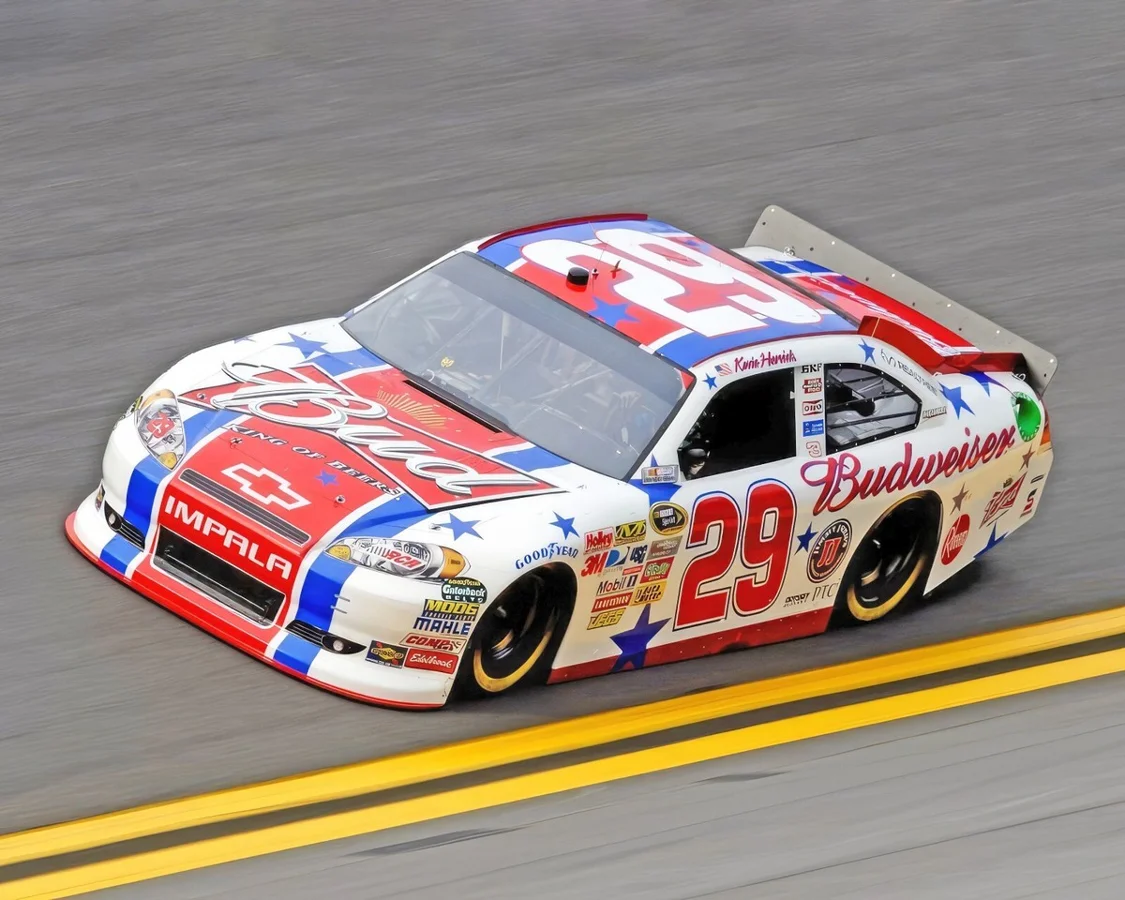Kevin Harvick on NASCAR TV ratings has stirred up debate, claiming that races scheduled on Saturdays are hurting the sport’s television numbers. Speaking recently on his podcast, Harvick, a former NASCAR Cup Series champion and current commentator, questioned the decision to continue holding Saturday night races, arguing the impact is visible in declining viewership.
Harvick Points to Richmond Ratings Decline
Kevin Harvick reignited the topic by highlighting Richmond Raceway as a prime example for his argument. In 2025, Richmond’s Saturday night Cup Series race reached only 1.39 million viewers—a sharp 37% drop from the 2.22 million viewers for the same event held on a Sunday the previous year. Harvick asserts that this is not an isolated event, emphasizing that industry insiders widely recognize the underperformance of Saturday night broadcasts.
“Why do we ever race on a Saturday night? It makes no sense. Makes zero sense,”
—Kevin Harvick, Commentator.
“Just look at the TV ratings when you get done. I know it’s football season, but the TV ratings are historically completely well known by everybody in the industry that it does not score ever, ever, ever, ever on a Saturday night.”
—Kevin Harvick, Commentator.
“We went from Saturday to Sunday at Richmond, and the TV numbers go up. We go from Sunday to Saturday, and the crowd goes up. I’m more concerned about the TV ratings than I am how many people are sitting in the grandstands because that’s what makes it go around. I don’t care what anybody wants, Sunday races rate better than Saturday.”
—Kevin Harvick, Commentator.
For Harvick, the drop in television viewership ties directly to NASCAR’s future, as TV ratings drive lucrative media deals and shape the sport’s financial outlook.
Fans and Drivers Offer Different Perspectives
While Harvick’s critique has sparked renewed attention on the issue, a diverse chorus of voices has pushed back against his stance. NASCAR journalist Jeff Gluck amplified concerns by sharing the ratings decline on social platforms, where fans and drivers quickly joined the conversation. Driver Ryan Blaney argued, as cited by Rajnish Kumar, that Saturday races play a valuable role, helping industry members like drivers maintain work-life balance, and are meaningful within the NASCAR community.
Traditionalists in the fan base have also come forward, emphasizing that longstanding events such as the Bristol Night Race are integral to NASCAR’s heritage and fan enjoyment. Social media users shared thoughts on how promotional strategy—not the timing alone—might explain the ratings decline.
“I think part of the reason the ratings are low is NASCAR doesn’t do a great job of letting the fan base know which races are on Saturday. If these races were promoted as Saturday night races with 3 weeks lead time, rating will improve dramatically.”
—TwangriLa, Fan.
“I love it! If I have a race to pick to go watch in person #1 under the lights is always the best. #2 Saturday night because then you have Sunday to recover before going back to work. The problem is we are losing fans because of many reasons. Our problem isn’t Saturday night racing.”
—Kyle, Fan.
“Saturday night races are not the problem.The problem is the way NASCAR runs itself.”
—Cogito, Fan.
These responses underscore that many within the NASCAR sphere see value in Saturday nights, believing broader issues—including communication and organizational strategy—also impact viewership and engagement.
Media Deals and NASCAR’s Shifting Broadcast Priorities
The debate around Kevin Harvick on NASCAR TV ratings emerges as the league adapts to a rapidly evolving media landscape. NASCAR recently entered into a record-breaking $7.7 billion television agreement, welcoming streaming partners such as Amazon Prime Video and Warner Bros. Discovery. This strategic pivot has shifted the focus of NASCAR executives from traditional Nielsen ratings to maximizing total reach across multiple platforms.
Despite an overall viewership dip of five percent in 2023, with an average of 2.86 million fans tuning in, the new media rights deal represents a 40% annual increase in fees. For many in the industry, the conversation now revolves around expanding the brand’s footprint, both through network broadcasts and new streaming partnerships.
Harvick, however, contends that regardless of industry changes, Sunday races consistently deliver the highest audience share and are fundamental for NASCAR’s popularity in mainstream sports culture.
Upholding Tradition Versus Adapting for Growth
At the core of the issue is the challenge NASCAR faces in balancing deep-rooted traditions with evolving business needs. Harvick’s vocal support for Sunday-focused schedules puts him at odds with segments of the fan base who cherish classic night races, but he insists the priority should fall on what significantly affects revenues and the sport’s ability to thrive long-term.
The upcoming seasons and the new multi-billion-dollar media partnership may push NASCAR to reevaluate its policy on Saturday night events. Harley’s stark warnings highlight the tension between tradition, viewership numbers, and the demands of media partners. The result of this evolving debate is likely to shape both the schedule and the culture of NASCAR for years to come.
